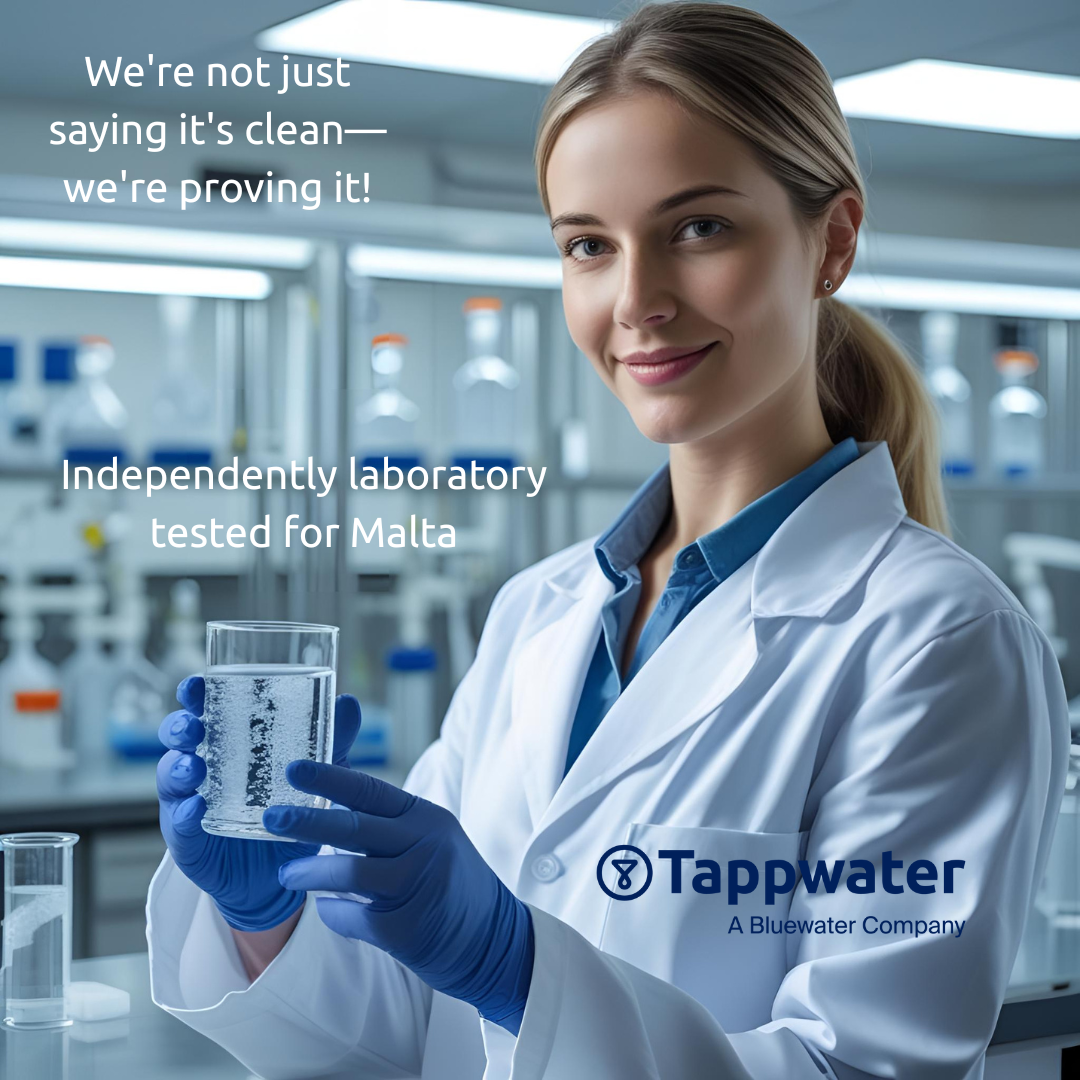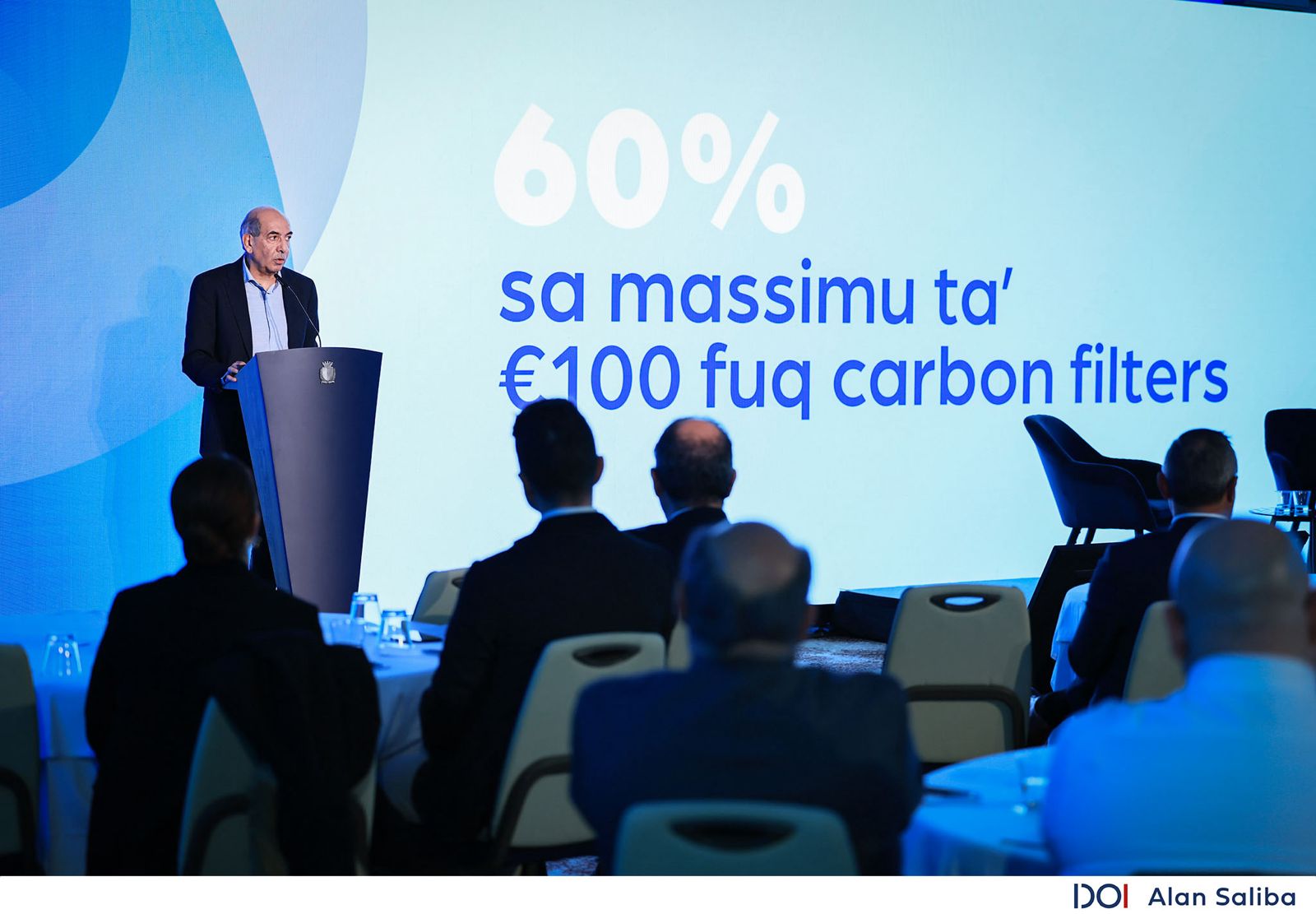
In the fast-paced, ever-changing landscape of the digital world we live in today, the influence and impact of Artificial Intelligence (AI) is becoming more and more apparent. This revolutionary technology is transforming a multitude of sectors across the globe, reshaping the way we live and work.
Among the nations leading the charge in this technological revolution is the small island country of Malta. With a myriad of small businesses actively harnessing the power of AI to improve their operations and services, Malta is quickly establishing itself as a significant hub for AI innovation. A prime example of this growing trend is the company TAPP Water (Malta) Ltd. This forward-thinking business has successfully integrated AI into its operations, demonstrating the potential and power of this technology in a real-world setting.
Introduction to AI
AI, or Artificial Intelligence, refers to the capability of a machine to mimic human intelligence. It involves creating algorithms that allow machines to learn from data, make decisions, and carry out tasks that would generally require human intellect. AI has proven to be a powerful tool in various fields, including healthcare, finance, transportation, and, most notably, business.
AI in Malta: A Brief Overview
In recent years, Malta has been positioning itself as a leading hub for digital innovation, with AI being a crucial part of its strategic focus. The Maltese government's proactive approach towards welcoming and nurturing AI-based solutions has stimulated an environment conducive to growth and innovation.
Artificial Intelligence: Strategy and Vision for AI in Malta 2030
The 'Strategy and Vision for Artificial Intelligence in Malta 2030' is Malta's National AI Strategy developed to maximize the benefits of AI for Malta's economy. The strategy, based on three pillars of investment, innovation, and adoption, and three enablers, namely education & workforce, legal & ethical framework, and ecosystem infrastructure, aims to establish Malta as a global AI leader.
With the MDIA overseeing the implementation of the strategy's 72 AI action points, Malta aims to transform key sectors such as traffic management, education, health, customer service, tourism, and utilities through AI. The strategy also emphasizes the ethical use of AI, with the 'Malta Ethical AI Framework' providing guiding principles for trustworthy AI applications.
What is a language model and how do we use it?
A language model is a type of artificial intelligence model that understands, generates, and interprets human language. These models are trained on vast amounts of text data, enabling them to predict the likelihood of a sentence or to propose what word comes next in a sequence. Language models form the basis for many common applications, such as machine translation, speech recognition, text generation, and sentiment analysis. They are designed to capture the statistical structure of language and can encompass a range of complexities, from simple bag-of-words models to advanced transformer models like GPT-3 and BERT.
Exciting developments for AI in Malta
For artificial intelligence Malta now has our very own BERTu, a Maltese language model which is an exciting development These models form the crux of various language-understanding tasks and have been instrumental in resolving numerous everyday problems.
BERTu was trained on several tasks, including Sentiment Analysis and Named-Entity Recognition, to broaden our understanding of how these models perform a variety of tasks. Sentiment Analysis involves identifying whether a text expresses a positive or negative sentiment regarding a particular topic. For instance, it can help determine public sentiment towards Malta's budget announcements.
Named-Entity Recognition, on the other hand, is a tagging task, which involves labelling each word in a text as named entities. This low-level task can be used to complement other language systems, for instance, in ensuring data protection laws by anonymizing person names.
BERTu, like other language models, is a pre-trained model, which means it has a general understanding of language but requires fine-tuning for specific tasks. BERTu is adapted to the target task by adding an additional layer on top of the model for each task, and then apply standard machine learning algorithms on the dataset to learn the parameters of this additional layer.
Pre-training models have several advantages over traditional models. They use simpler architectures and require less computational power and labelled data. More importantly, pre-trained models like BERTu perform significantly better than their predecessors, often improving performance by over 20 per cent.
It will be great to see more exciting developments using BERTu as a model most likely to be seen first in the financial services industry as a customer support BOT. We are certainly seeing more Malta local news about AI and we expect this to continue to grow as part of the growth of fintech, robotics, cybersecurity, green energy and the digital economy in Malta.
It is also an interesting time for considering what regulation needs to be put in place to ensure that data is secure and business processes are protected from threats which may exist as the technology develops - for instance the possibility of misinformation generated by "bad actors" with deep-fake videos is very real. The regulatory landscape lags behind technological development, but we have seen the initiation of many conversations in this are, possibly because of real fears about AI.
As threats increase though, it is likely that mitigation measures will also be developed to counter the threats. But AI legislation is bound to be part of this development cycle and small business should expect to have more compliance to deal with if using AI in the workplace.
AI Research in Malta
In Malta, the Artificial Intelligence Research Group at the Institute of Digital Games is at the forefront of innovative AI research. The group uses games as a unique platform for studying AI, as they pose complex problems for AI to solve and provide a space for creativity and expression. This dual benefit has made games a favorite domain for AI research. The group's work is consistently recognized at top-tier conferences and competitions, highlighting their influential contributions in AI, machine learning, and creative computing. The team, co-directed by Prof. Georgios Yannakakis and Dr Antonios Liapis, is composed of nine researchers who collaborate with industry giants like Ubisoft, pushing the boundaries of AI research.
In addition there are already AI programmes in Malta as interest in pursuing a career in AI increases, it is already clear that for Malta to be at the forefront of this new technology we will need to develop more human skills in the area and this is already a key part of AI policy in Malta, the University of Malta has already hosted several high profile AI events in Malta and continues to lead in this area.
AI in education in Malta
Artificial Intelligence (AI) is rapidly transforming the landscape of education, offering a myriad of possibilities for improved learning outcomes. Through personalized learning, predictive analytics, and automated administrative tasks, AI is revolutionizing teaching and learning methods. It tailors the content to suit individual learner's pace and level, providing a more engaging and efficient learning experience. Moreover, AI-driven analytics can predict student performance, enabling timely interventions. By automating routine administrative tasks, AI also allows educators more time to focus on teaching. Therefore, AI holds immense potential to make education more effective and accessible.
In Malta, the primary concern regarding the use of AI in education revolves around potential student misuse of advanced AI models like ChatGPT for academic assignments. This was revealed during senior-level meetings held at the University of Malta. The staff expressed worry over the difficulty in detecting work generated by AI, which could disrupt the education assessment system. They are exploring solutions like watermarking AI-generated content or reverting to traditional pen-and-paper exams. Despite the challenges, they remain hopeful but emphasize the need for vigilant monitoring.
AI in Government Services
We are starting to see AI tools being introduced into Government Services. For instance Identity Malta has launched a new AI-based biometrics booth to collect the relevant data when processing passports. We have also seen in the Maltese news the tax authorities in Malta introduce a new AI-powered software to analyse data from public registries, cash deposits and assets in order to reduce tax fraud.
AI for Small Businesses in Malta
AI offers a multitude of benefits for small businesses. From improving operational efficiency to driving customer engagement, AI tools can significantly enhance business processes. They provide cost-effective solutions, allowing small businesses to compete on a larger scale.
Starting as early as possible to use AI as part of a digital transformation for any business that is making changes to improve their digital skills is going to give any small business an advantage.
At TAPP Water we felt is was better to step in early with this innovation and get started as soon as we were able to so we accelerate our learning curve. So far we are glad to have made a start using AI as part of our digitalisation infrastructure and experienced the benefits in both the range of subject matter we can create and the time saved in doing so. Our AI strategy is to keep learning and watch for new developments on all the platforms that we use.

Case Study: TAPP Water
TAPP Water, an eco-conscious business in Malta that distributes household water filters in Malta provides an excellent example of a small business successfully harnessing the power of AI. The company uses AI in various ways, from content creation to social media management and SEO analysis, making their operations more efficient and consistent.
Leveraging WriteSonic for Content Creation
TAPP Water uses WriteSonic, an AI-powered writing assistant, to aid in content creation. This tool generates fresh and engaging content, saving the team valuable time. WriteSonic offers a wide range of features, including blog posts, product descriptions, ad copy, and social media posts. The AI tool also allows the team to customize the tone and style of the content, ensuring it aligns with TAPP Water's local brand voice.
Using this tool at TAPP water is a huge timesaver for the small team behind the company, and it enables us to be more efficient as well as save money.
Writesonic sets itself apart from other AI content generators with its comprehensive array of features tailored to small businesses and solo entrepreneurs. It offers diverse content generation options, including social media posts, product descriptions, and advertising copy, making it a versatile tool for various marketing needs. The platform's user-friendly interface combined with its affordable Pro subscription starting at $13 per month, makes it accessible to small businesses.
"I hade experimented with ChatGPT when it first launched as a free version but decided to go for an easy to use platform which makes sure I can use the full functionality by giving me an easy to use interface to work with" said Phil Richards CEO of TAPP Water (Malta) Ltd.
AI and SEO: A Winning Combination
TAPP Water also uses AI for SEO analysis and keyword research. This allows the company to optimize its online content, improve its search engine rankings, and drive more traffic to its website. With the help of AI, the company can identify high-performing keywords and incorporate them into their content strategy.
AI in Social Media Management
AI plays a crucial role in TAPP Water's social media strategy. From generating ideas for posts to writing catchy captions, AI helps the company maintain an active and engaging presence on social media. This not only boosts visibility but also helps build a strong relationship with their audience.
AI in Email Marketing
The company also uses AI in its email marketing strategy. Using AI, TAPP Water can craft compelling subject lines and create personalized content, improving email open rates and customer engagement.
The Future of AI in Business
The use of AI in business is not just a passing trend; it's the future. As AI technology continues to evolve, businesses will be able to harness even more powerful tools that can help them grow and thrive.
At TAPP Water in Malta we are balancing our use of AI with ensuring that we stay close to our customers and provide a personal service.
Currently for instance we have a chat bot for online customer support, this is integrated with website chat, WhatsApp and Facebook messenger - but apart from automating out of hours messages the majority of our responses are created by one of us humans.
However we do run some automated and programmed service flows for specific issues such as reporting an issue, pre-sales advice on filter selection and customer returns. However we always have humans on hand to answer these flows also they act mostly as information collection rather than problem resolution.
AI investments in the tech stack
Because of our commitment to investments in high performing platforms such as Shopify for the online store, Gorgias for integrated omni channel customer service, Airtable for customer data, Zapier for connecting multiple platforms we have seen all these platforms invest in AI to improve the range of services on offer. Its early days on some platforms but we believe investing in high quality SAAS platforms will lead to further use of AI in each specific area.
To develop further use of artificial intelligence in Malta any small business such as ours can make a start by looking at the smallest tasks that can be done using AI support and then scale up from there.
Understanding Google Bard
TAPP Water uses Google Bard for sentiment analysis about tap water issues in Malta. This tool provides valuable insights that help the company tailor its products and services to meet customer needs and preferences. When asked for the source data that Google Bard was using to provide a research point summary we learned that the data was coming from recent news articles, research studies and the sentiment from several Facebook groups. The data used is the same as we would have used manually - its just that the research only took 5 minutes to get in a useable summarised form.
Conclusion
The successful integration of AI in Malta's small businesses, as evident in TAPP Water's operations, underscores the transformative power of this technology. AI not only enhances efficiency but also drives innovation, providing businesses with a competitive edge. As AI opportunities continue to evolve, it is set to play an even more critical role in shaping the business landscape in Malta and beyond.




![[WATCH] Malta's Tap Water Challenge: The Tappwater Solution. A Look at the Science, the Tests, and the Deliciously Clean Results.](http://tappwater.mt/cdn/shop/articles/Why_We_lab_tested_maltas_water_Sqaure.png?v=1756738451&width=1080)









0 comments